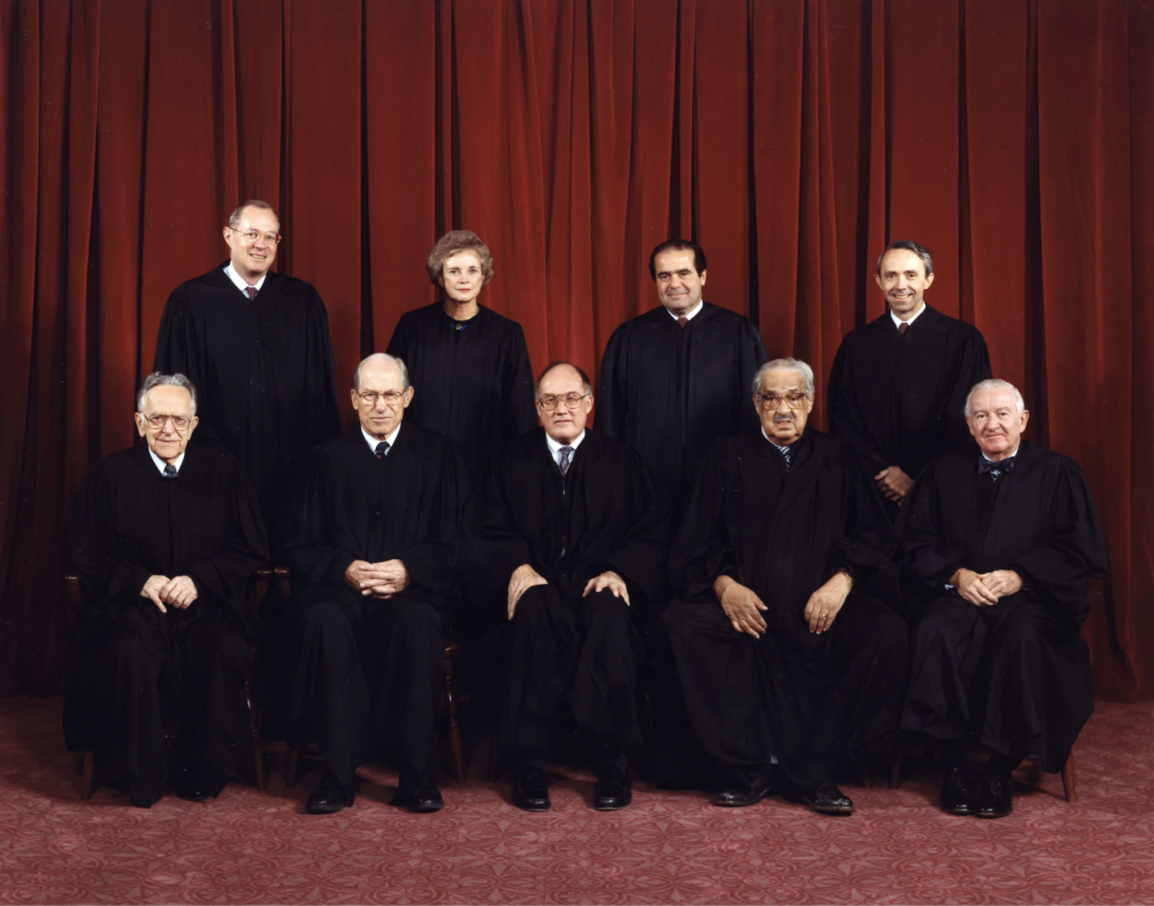Sandra Day O’Connor, a former American Associate Justice of the Supreme Court, died earlier this month on December 1st. She was appointed by Ronald Reagan in 1981 and served until 2006. As the first woman on the court, she inspired generations of females aspiring to be in politics. President Joe Biden hailed her as “an American icon” and Chief Justice Roberts described her as a “fiercely independent defender of the rule of law. ”In 2018, O’Connor revealed that she had been diagnosed with early stages of dementia and was withdrawing from the public.
O’Connor was born in 1930 and grew up on her family’s ranch in Arizona. At 16 years old, she was admitted to Stanford University and attended Stanford Law, graduating in 1952. In law school she met her husband John Jay O’Connor and shared the same classes as Chief Justice William Rehnquist. After graduation she struggled to find a job because the legal field was primarily male dominated. O’Connor initially worked as the county attorney for San Mateo County in California and later a civilian attorney with the Army Quartermaster Corps. In 1969, she was selected to fill a vacancy in the Arizona State Senate. Three years later, she became the first woman to serve as the majority leader in the state senate.
O’Connor was elected to the Maricopa County Superior Court, and later served on the Arizona Court of Appeals from 1975 to 1979. In his 1980 campaign, President Ronald Reagan promised to appoint the first women to the Supreme Court. The opportunity presented itself in 1981, when Justice Potter Stewart retired. Sandra Day was later confirmed by the Senate in a unanimous vote, and became the first female justice. O’Connor served on the Supreme Court from 1981 to 2006. She often sided with the conservative opinion but at times sided with liberal members. During her tenure, she served as the deciding vote for many controversial cases such as Planned Parenthood v. Casey, Grutter v. Bollinger, and Bush v. Gore. O’Connor helped write the lead opinion in Planned Parenthood v. Casey, which established a woman’s right to abortion.
In early 2006, O’Connor announced her retirement from the court following her husband’s diagnosis with Alzheimer’s. President Barack Obama awarded her the Presidential Medal of Freedom in 2009. Later that year she founded the organization iCivics to help advance civil learning. O’Connor made her mark on American politics with her contributions to American politics and pushing through boundaries as a female in the legal profession. Her legacy continues inside and outside of the court.
https://www.cbsnews.com/news/sandra-day-oconnor-first-woman-on-the-supreme-court-dies-at-93/

